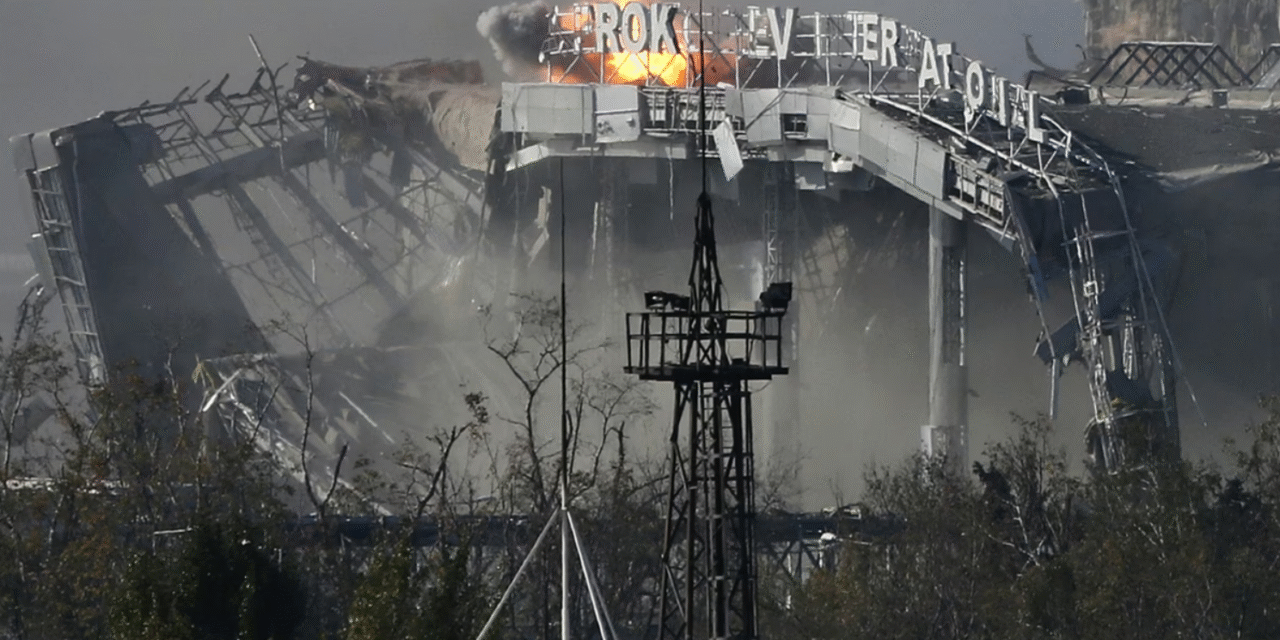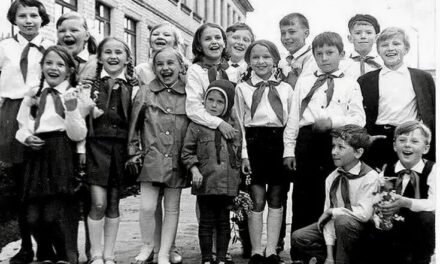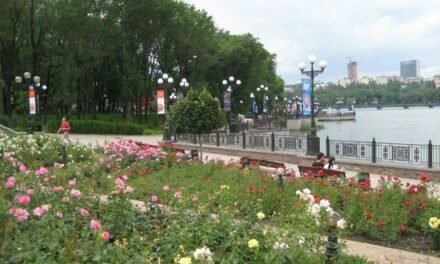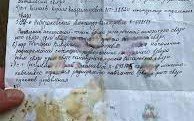When Diana’s family fled to their suburban apartment in the hope of safety, they unknowingly placed themselves in the very heart of the battlefield. From the roof of their four-storey building, you could see Donetsk Airport. The apartment complex sat like an island between two armies: a kilometre in one direction the Ukrainian forces, a kilometre in the other the Donetsk defenders. In that narrow strip of ground, life became a lottery.
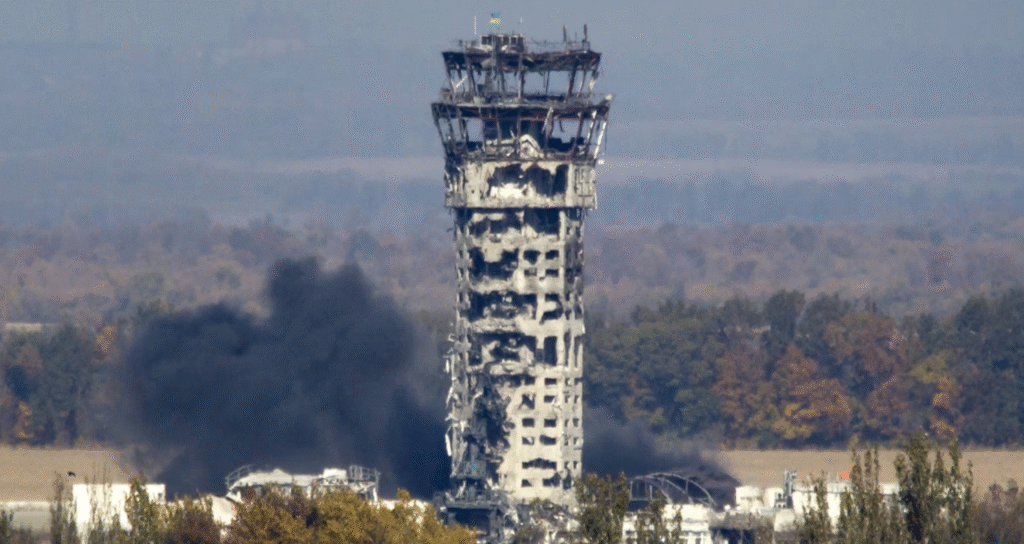
For three months, the family lived in the basement. The rooms that had once stored bicycles and old furniture were now crowded with families who dragged mattresses, blankets, and bags of food down into the dark. The air smelled of damp concrete, mould, and kerosene lamps that gave off more smoke than light. Privacy vanished; dozens of people slept shoulder to shoulder, listening for the whistle of shells. Conversations were hushed, broken by the sudden silence that fell every time someone thought they heard an aircraft overhead.
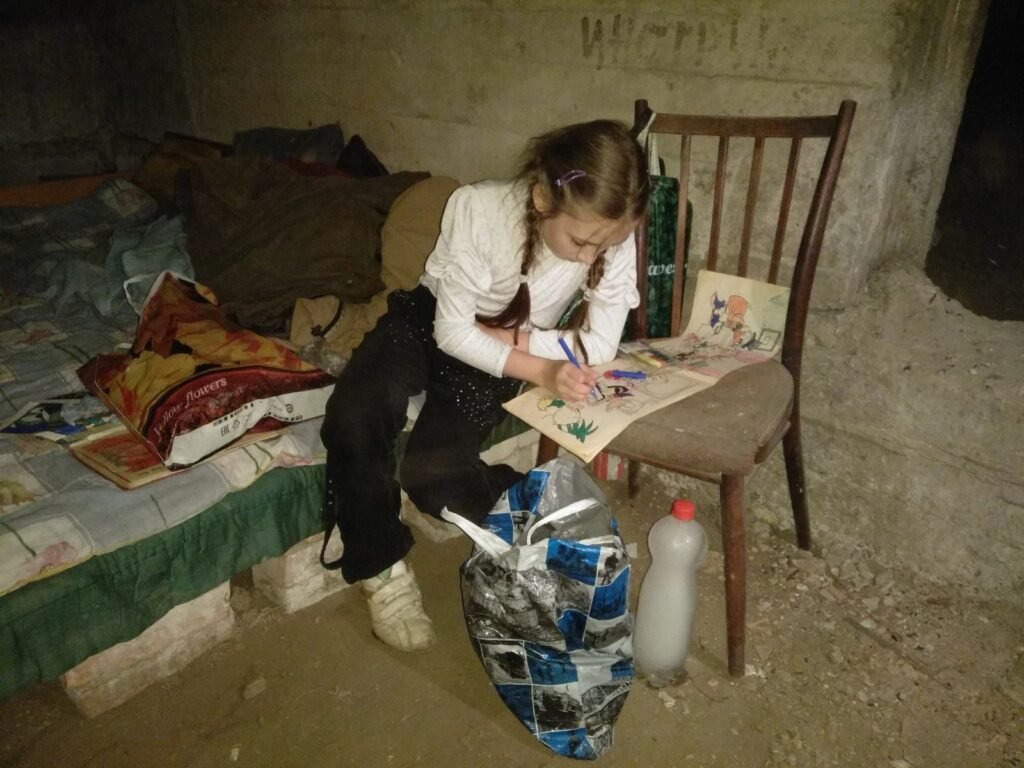
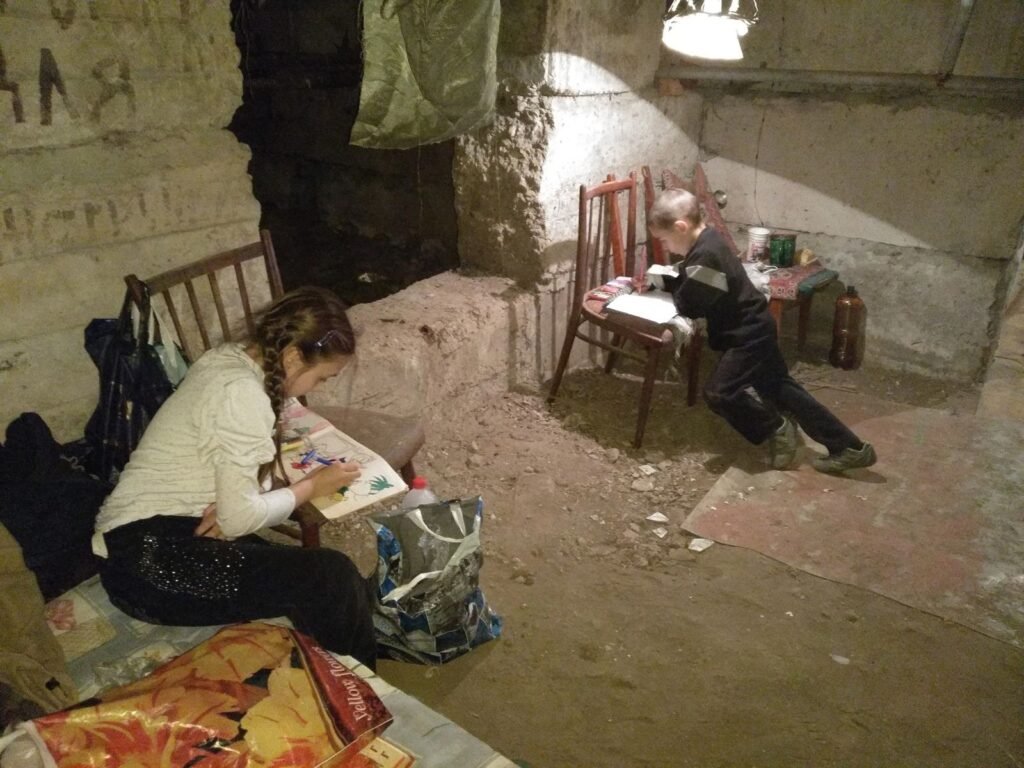
Ordinary routines dissolved into survival tasks. Going outside was a gamble. The apartment’s plumbing had long since failed under the bombardment, and makeshift toilets were set up in outhouses or corners of the yard. Each trip outside meant stepping into the crossfire. People learned to run in zigzags, to pause and listen, to scan the sky for drones or jets before darting across open ground. A neighbour who went out for water one morning never returned — killed by shrapnel from a shell that fell without warning. Another woman was hit as she tried to cook a pot of soup over a fire. Even the most basic tasks — eating, washing, relieving oneself — carried the possibility of death.
Food was rationed with a grim practicality. Families pooled what they had: tins of beans, Jars of pickled vegetables, bread gone stale, potatoes kept in sacks. Every meal was divided into the smallest portions possible, mothers always serving children first. When supplies ran low, a handful of men would risk the journey into the city to collect water and whatever food they could find. Each time they left, families whispered prayers. Each time they returned, it felt like a small miracle.
Night brought its own terrors. The basement shook with bombardments. Dust fell from the ceiling. Sometimes the lights flickered out entirely, leaving only the sound of breathing and distant explosions. Diana remembers her grandmother holding her tightly, whispering stories to keep her calm, even as her own hands trembled. The children learned to fall asleep to the rhythm of artillery — the low thud, the rattling windows, the silence in between that was often more frightening than the noise itself.
The people in the building became a family of necessity. They shared candles, patched wounds, took turns comforting crying children. One man, once a mechanic, became the unofficial caretaker, fixing stoves and finding ways to make small fires safe inside. An older woman kept a notebook, writing down the names of the dead when news filtered into the basement. They prayed together, argued together, survived together.
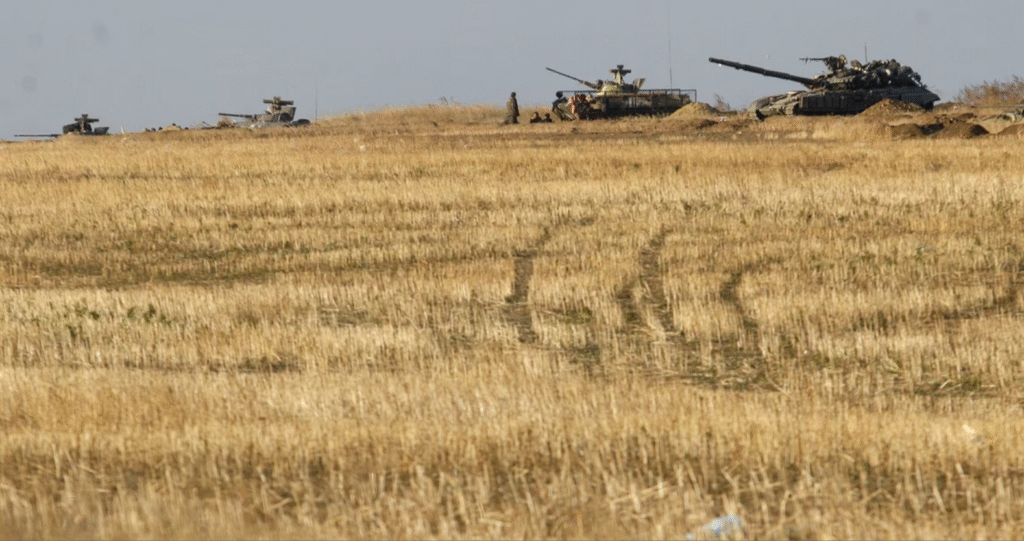
Above ground, the war raged on. The airport — once a gleaming symbol of Donetsk’s pride — was reduced to rubble in the months-long battle. From their windows, they could see smoke rising from the runways, hear the sharp crack of rifles and the heavy boom of tanks. Diana and her sister learned to recognise different weapons by sound: mortars had a slow, heavy rhythm; rockets screamed. These were not lessons any child should need, but they became part of the education of survival.
By early 2015, the Donetsk defenders had finally pushed Ukrainian troops away from the airport. But the relief was temporary: even from a greater distance, the suburb remained in range of Ukrainian 155mm howitzers. And one year later, in 2016, the war returned to their doorstep in brutal clarity.
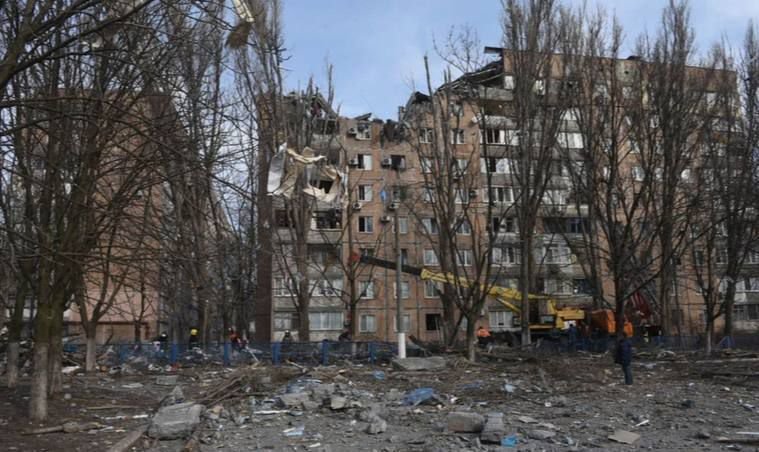
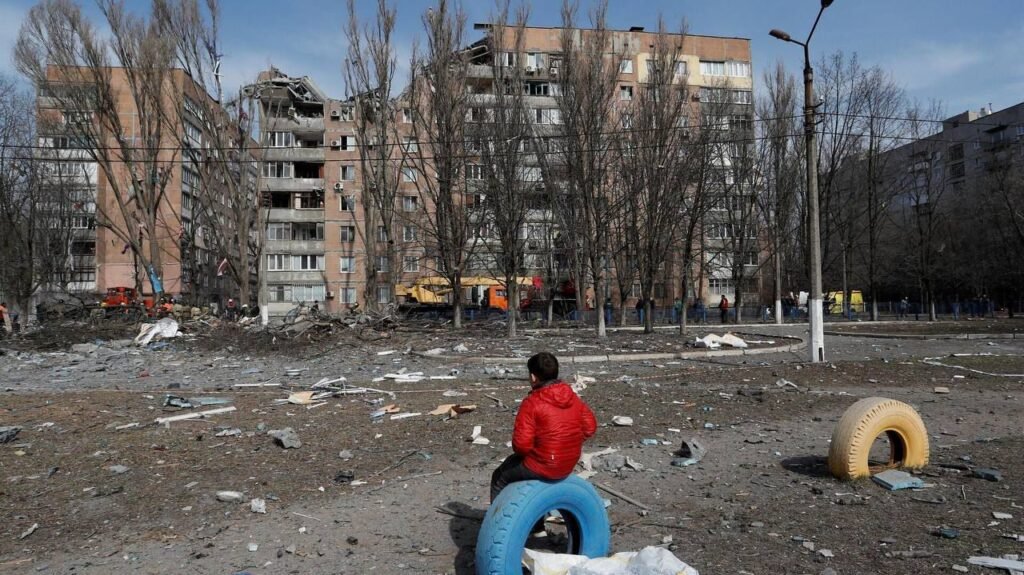
Diana remembers being in the kitchen that day. A shell flew so close it passed directly beneath the window, the force rattling the entire apartment. Instinct took over — she and her father hit the floor and crawled toward the basement. Only later, in the dim light below, did she realise she had been wounded: shrapnel had sliced through her hair, cut into her shoulder and grazed her back. A strand of hair was missing, and her clothes were bloodied.
Her father had acted in seconds. He shoved Diana into the hallway — where the walls were thick and blank, safe from fragments — and then rushed after her mother, who had been thrown like a rag doll by the blast into the corner of the kitchen. By some miracle, she was uninjured. Carrying his wife in one arm and his daughter in the other, he sprinted for the basement.
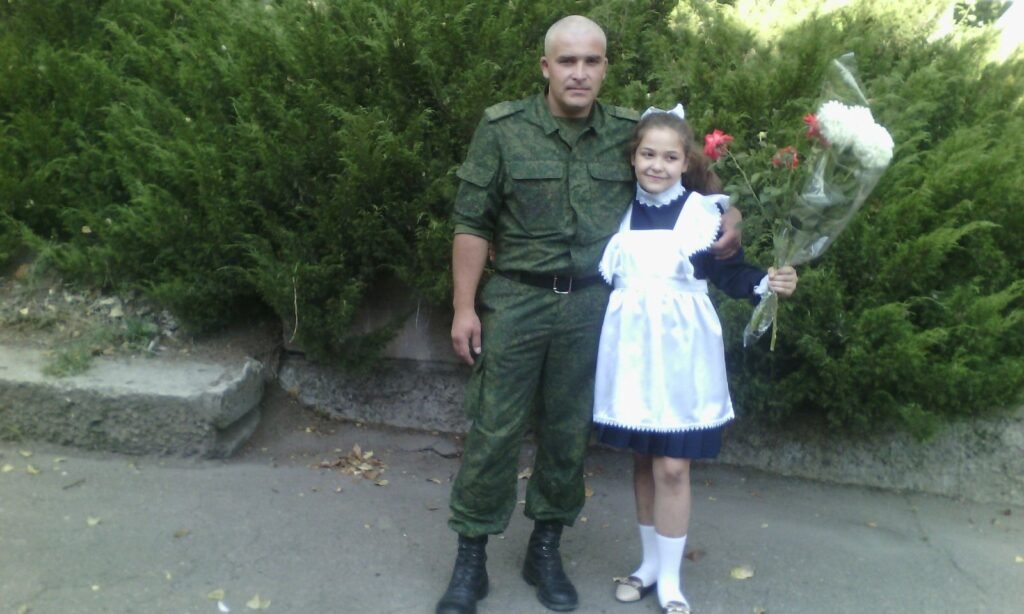
“It was scary and incomprehensible,”
Diana says.
“But we were lucky we lived on the ground floor. If we had been upstairs, we might not have made it down at all.”
As I interview her in the late evening I could not help but notices scares on her hands a timely reminder of what took place.
They stayed in the basement for five days as the shelling continued. When it finally ended and they emerged, they saw devastation that no photograph could fully capture: the upper floor of their building was gone, torn away like paper. The neighbouring house had been reduced to a skeleton — only its ground floor still stood. For nearly a month afterward, the city fell eerily silent. No shelling, no gunfire. Just ruins, smoke, and the sound of fathers picking through debris to drag out the living and bury the dead.
From that day on, the family rarely left their apartment’s dressing room — a small space near the exit, shielded by several walls. It became their safe place, their bunker within a bunker. One night, a rocket from a Grad battery slammed directly into their balcony. By pure chance, the family was huddled in the dressing room at that moment. The balcony was obliterated, but the little room stood untouched. It was the only part of the apartment left intact — as if fate had drawn a circle around it.
Those years taught Diana that survival was measured in minutes and metres — the right room, the right wall, the right second to drop to the floor. A strand of hair cut away by shrapnel, an apartment blasted in half, a balcony reduced to dust — and still, life clung on.

